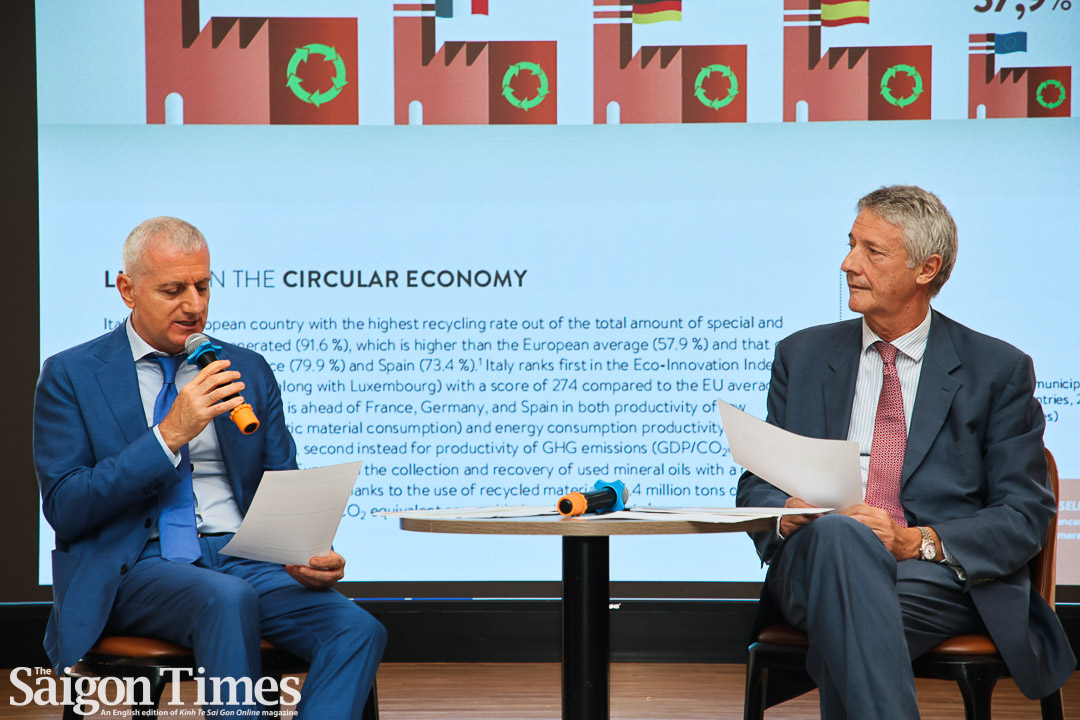HCMC – Vietnam and Italy see significant potential to expand cooperation in sustainable agriculture, according to Enrico Padula, Italian Consul General in HCMC.
Speaking at a recent business event hosted by the Italian Chamber of Commerce in Vietnam (ICHAM) on March 19, Padula highlighted Italy’s advanced agro-industry technologies, particularly in packaging and agricultural tools, as a promising area for economic collaboration and modernization of Vietnam’s agricultural sector.
“There is strong potential for cooperation in the agro-industry. At this moment, major Italian companies are introducing cutting-edge technology in packaging and agricultural tools, which could serve as a solid foundation for Vietnam-Italy collaboration,” Padula told The Saigon Times.
The event featured the “Italy in 10 Selfies” report, which showcases 10 key industries in which Italy excels, ranging from the circular economy and renewable energy to pasta production, pharmaceutical exports, and furniture.
According to the report, Italy leads Europe in organic farming, with 82,627 workers, surpassing France (60,522), Spain (55,851), Germany (36,688), and Austria (26,251). It also ranks first in Europe for registered and protected food and wine products, with 856 designations including 584 PDOs (Protected Designation of Origin), 268 PGIs (Protected Geographical Indications), and four TSGs (Traditional Specialties Guaranteed). France follows with 715, while Spain, Greece, and Portugal have 361, 264, and 194, respectively.
Additionally, only 0.98% of Italy’s food products exceed legal chemical limits, ranking second in Europe and first among major European nations in food safety. Over the past two decades, Italy has reduced greenhouse gas emissions in agriculture more significantly than other large EU nations—including France, Germany, and Spain—as well as the EU-27 average, based on 2021 data.
Michele D’Ercole, chairman of ICHAM, emphasized that Italy’s expertise in agricultural technology and sustainability could help Vietnam enhance production quality and meet global sustainability standards while maintaining its strong export performance. The initial focus is on introducing advanced agri-food machinery, but there are also plans to support Vietnamese farmers in adopting sustainable practices, with discussions underway to organize a dedicated seminar on the topic.
Vietnam, a leading exporter of coffee, tea, and seafood, relies heavily on agriculture, but global markets increasingly demand higher sustainability standards. This shift is driving Vietnam’s efforts to modernize its agricultural sector.
As Europe’s largest rice producer, Italy has pioneered advanced farming techniques that prioritize efficiency and environmental protection. According to D’Ercole, Italian businesses are exploring technology partnerships to support Vietnam’s agricultural sector, reflecting a shared commitment to sustainable development.









